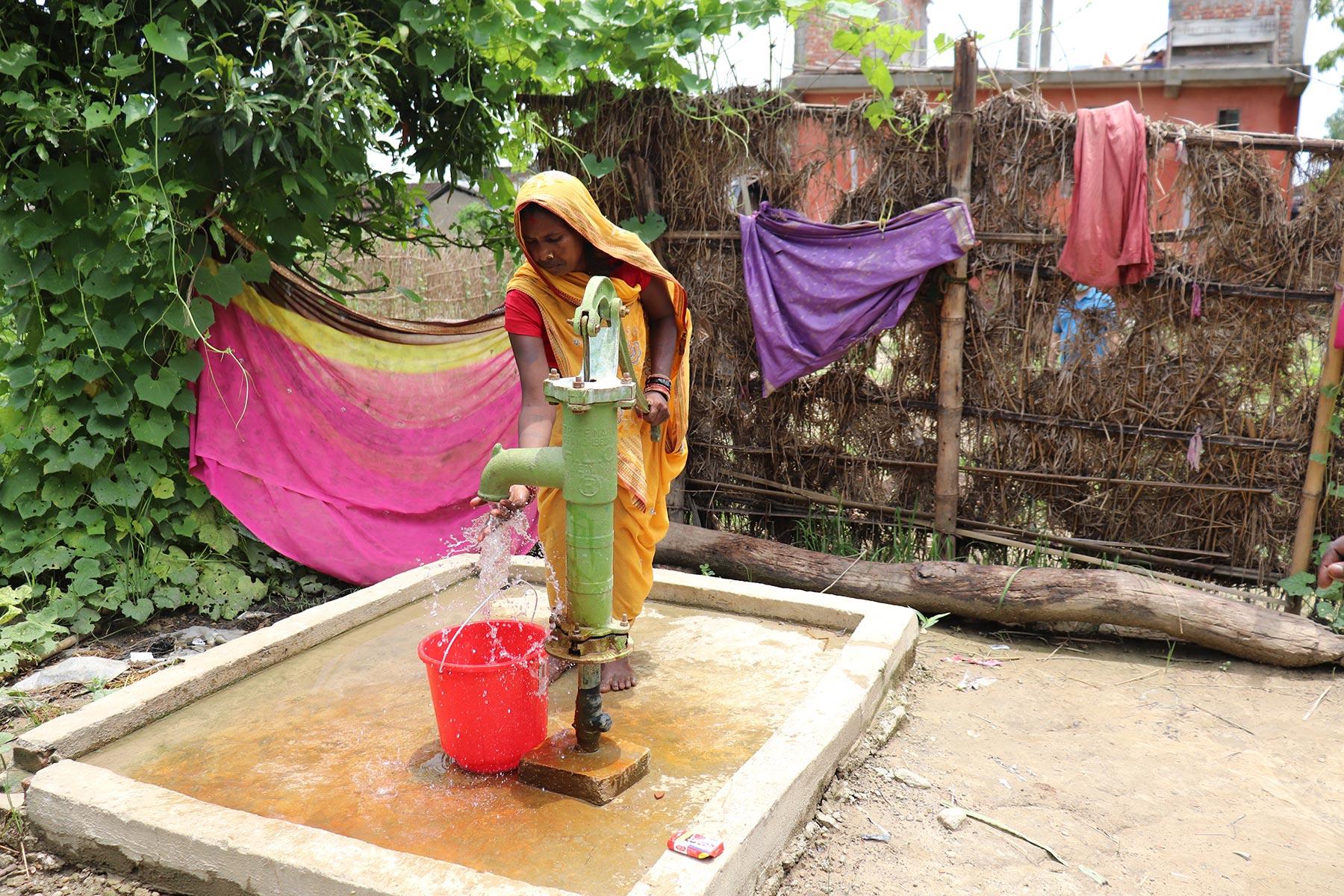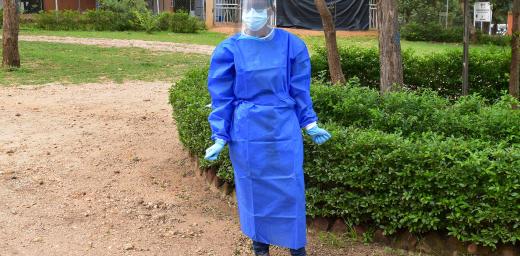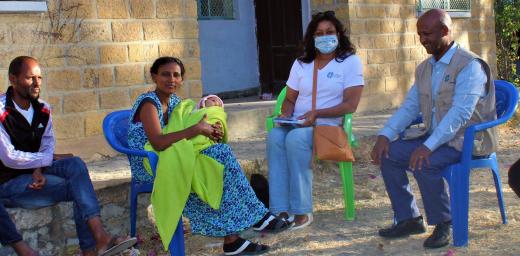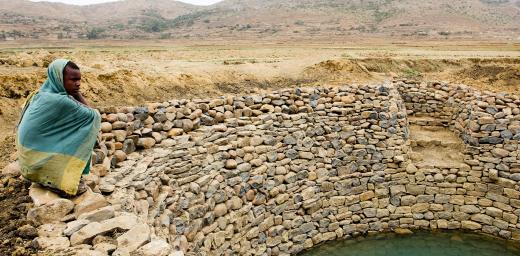Nepal: Fostering resilience through water, sanitation and health

Ms. Rohini Devi Paswan, a resident of Dhanusa, drawing water from a newly constructed hand pump â Photo credit: Suman Rai/LCWS
LWF, City of Geneva and partners support vulnerable populations and COVID-19 recovery
(LWI) - The Lutheran World Federation (LWF) is accompanying vulnerable populations in Dhanusa and Morang, Nepal, through water, sanitation and health (WASH) projects. The initiatives aim to enhance their capacity to recover from the effects of the COVID-19 pandemic and mitigate its spread.
Funding from the city of Geneva, Primate's Relief and Development Fund, Australian Lutheran World Service (ALWS) and contributions from local communities and partners have made it possible to implement the project and encouraged local authorities to take initiatives well.
In December 2021, 35% of the population in Nepal had received the first dose of the COVID-19 vaccine and 30% had received second dose. As a result, the spread of COVID-19 remains a concern. Strengthening WASH capacity can help mitigate its spread.
“A household toilet near my home was a dream … now, I have hope”
In Nepal access to government assistance is at times linked to a household's ability to prove that they own their own latrine. Not all community members, however, are able to build a latrine or have access WASH resources. The joint initiative implemented by the LWF, Aasaman Nepal and the Lutheran Community Welfare Society (LCWS) works to bridge that gap and also care for the psychological wellbeing of affected communities while organizing community support groups.
In the Dhanusa district, most of the population makes a living in the agricultural industry producing rice and wheat. Mr. Raj Kumar Yadav (55) lost his family vegetable shop due to the pandemic. Yadav received a hand pump, a latrine and support to revive the shop.
“A household toilet near my home was a dream to me which is now a reality thanks to this project (…) Now, I have hope for my future and my family.”
Yadav has been blind since the age of seven. He shared how living with a disability is challenging but support from the project has made his life easier. “It was very difficult for me to bathe at public water pumps. I felt humiliated when people passed by. I have also fallen many times while going to the open toilets at a nearby farm.” He added that a household toilet near his home “was a dream to me which is now a reality thanks to the project. Now, I have hope for my future and my family. We are able to live in dignity and with the respect of the community.”
The local women and girls have also expressed relief to no longer needing to wait for night fall to go to visit toilets but are free to go whenever they need with access to water as well. There is also less fear of snake bites. Snakes often group around latrines during nighttime.
Almost 30,000 individuals have benefited from the project. Fifty hand pumps and fifty latrines were provided for the most vulnerable households. Close coordination with local governments streamlined assistance to more than 24,000 households who received WASH items including soaps, sanitizer, water filter and a plastic bucket for handwashing and face masks.
“This project demonstrates that working with local authorities compliments our initiative by expanding the potential outreach of support to communities. We started with a goal of building fifty pumps to provide access to clean water, and the municipalities in the Dhanusa decided to build additional pumps for residents.” Susan Muis, LWF Regional Program Coordinator.





